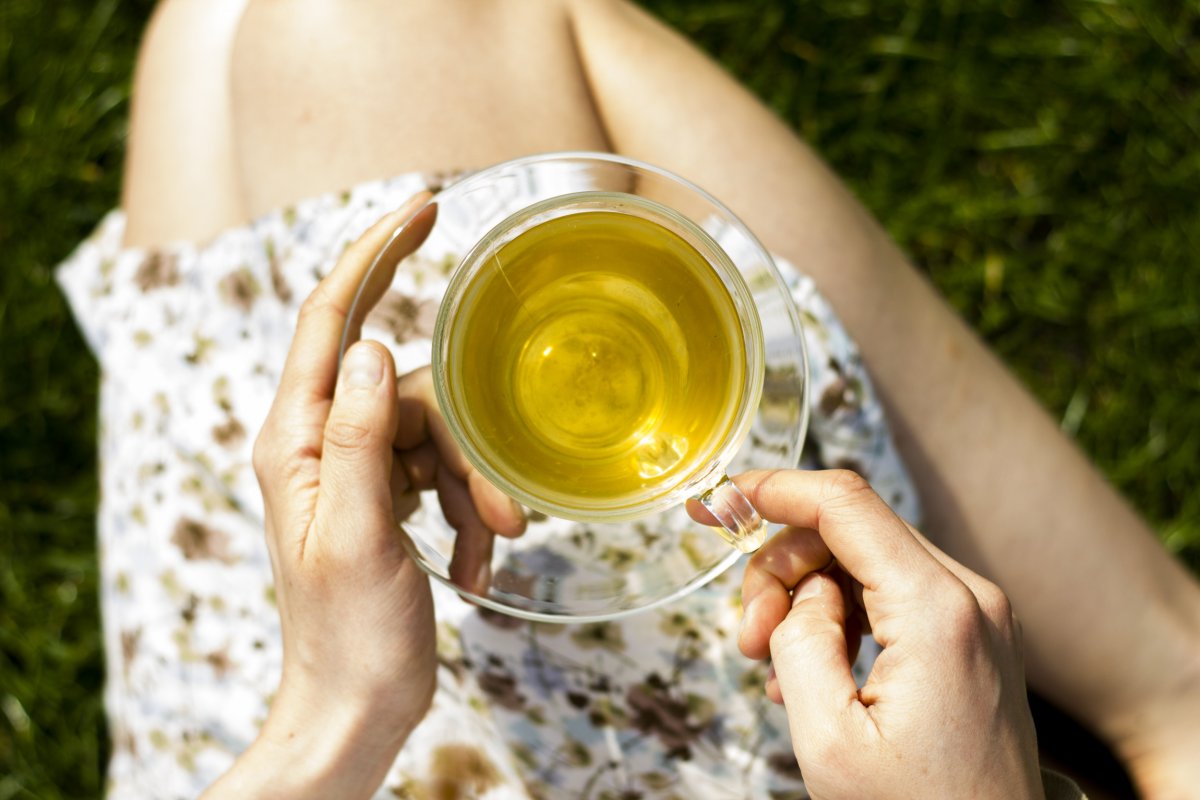Just one plastic teabag can release billions of tiny plastic particles into tea, scientists have discovered. The research, which "shocked" the team, suggests we may be consuming far more mircroplastics than we currently realize—with potential impacts on our health.
Steeping a single, empty plastic teabag at 95 degree Celsius releases around 11.6 billion microplastics and 3.1 billion plastic nanoparticles into the water, according to the authors of the study published in the journal Environmental Science and Technology.
Microplastics range in size from 100 nanometers (nm) to around 0.2 inches, while nanonplastics measure at 100nm or less—1,000 times smaller than the thickness of human hair.
In the study, the team emptied the contents from four different types of plastic tea bags bought in Canadian stores, thoroughly rinsed them, then steeped them in hot water.
The scientists examined the water to find out whether it was contaminated by tiny bits of plastic.
It is unclear whether the minuscule pieces of plastic are harmful to humans. However, the researchers conducted preliminary tests on water fleas and found the particles didn't kill the bugs—but they did change their behavior and trigger developmental problems.
Plastic teabags are a relatively new invention which move away from traditional paper bags, the authors of the research wrote.
Study co-author Nathalie Tufenkji, from the Brace Center for Water Resources Management at McGill University, Canada, told Newsweek: "I was sitting in a shop enjoying a cup of tea when I looked down at my cup and noticed that the teabag seemed to be made of plastic. I immediately asked myself whether it could be releasing plastic particles into the tea."
Past studies have found microplastics in table salt, fish, as well as tap and bottled water, she said.
Table salt, for instance, contains approximately 0.005 micrograms of plastic per gram, on average. "Then we see that a cup of tea contains thousands of times greater mass of plastic—16 micrograms of plastic per cup of tea," Tufenkji said.
First author Laura Hernandez, from the department of Chemical Engineering at McGill University, told Newsweek: "We were shocked to see the high number of plastic particles released into the beverage. We found that billions of particles are released into the tea versus only thousands found in other foods or beverages, such as bottled water.
"This study shows that some foods or drinks can contain a considerable amount of microplastics," she argued.
Tufenkji added: "More research is needed to understand the potential human health impacts of consuming micro- and nanoplastics."
Malcolm Hudson, associate professor in environmental science at the University of Southampton, who did not work on the study, told Newsweek follow-up research is needed to confirm the findings.
He said the study featured only a "small number of tea bags" and argued it would be useful to repeat the study with more types of tea bags. Hudson also said the figures the team came up with are "quite rough estimates—at best no more than a ball-park figure."
Hudson said he avoids using plastic teabags regardless of the possible health consequences because they are an unnecessary single use plastic. "There are other ways of brewing tea that don't involve using plastic," he said.
Earlier this month, a separate team of scientists who studied human feces found people inadvertently ingest thousands of microscopic plastic particles each year. The findings were published in the journal Annals of Internal Medicine.

Uncommon Knowledge
Newsweek is committed to challenging conventional wisdom and finding connections in the search for common ground.
Newsweek is committed to challenging conventional wisdom and finding connections in the search for common ground.
About the writer
Kashmira Gander is Deputy Science Editor at Newsweek. Her interests include health, gender, LGBTQIA+ issues, human rights, subcultures, music, and lifestyle. Her ... Read more
To read how Newsweek uses AI as a newsroom tool, Click here.








